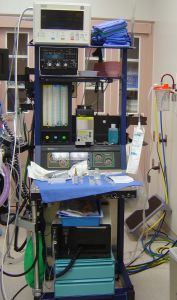There are at least 87 different mesothelioma clinical trials underway in 2014, yet surveys show that 85 percent of all cancer patients are either unaware of or unsure whether participation in a clinical trial is an option. According to the Huffington Post, 75 percent of those unaware of the potential to participate in a clinical trial indicated that they would have been willing to enroll if they had known that a trial of a new treatment was available to them.
Around 90 percent said that they would have volunteered for a clinical trial if the initial treatment regimen failed them. 
Clinical trials can provide a last hope of treatment or cure for patients whose cancers do not respond to conventional treatment like surgery, radiation or chemotherapy. Unfortunately, many patients with mesothelioma do not respond well to conventional treatment because the cancer is spread in the lining of the lungs rather than in a solid mass of tumor. Victims of mesothelioma should understand both their medical options as well as their legal rights to obtain compensation from those responsible for causing their condition. In almost all cases, mesothelioma is caused by exposure to asbestos. An experienced Boston mesothelioma lawyer can help to take action against asbestos manufacturers or against employers in the event that exposure to asbestos fibers occurred while working.
Clinical Trials Could be an Answer for Mesothelioma Patients
Each year in the United States, there are around 2,500 to 3,000 new documented cases of mesothelioma. There are also around 2,600 deaths. Mesothelioma typically doesn’t become apparent for anywhere from 20 to 40 years after initial exposure to asbestos fibers, and it can affect people exposed at work or who experienced secondary exposure because a household member was in a high-risk job. Those in the construction, auto repair industry or military are especially at risk, as are firefighters.
The long latency period coupled with the fact that mesothelioma is generally asymptomatic until the cancer has become advanced all combine to make mesothelioma really difficult to treat or cure. Chemotherapy is often the only viable option and it usually serves only to extend life rather than to eradicate the cancer.
Clinical trials could provide new hope to mesothelioma patients, though, as these trials allow researchers to try new and experimental treatment options that have not been used before. Clinical trials generally consist of four phases and are designed to determine if the treatment is safe, if it works, if it works better than existing therapies, and if the treatment is safe and effective over the long-term.
To participate in a clinical trial, a patient with mesothelioma would need to meet the qualification specifications and would need to give informed consent. Typically, if the side effects are severe or if it becomes clear that the treatment is not working, the patient can drop out of the trial or it can be cancelled.
Around two to three percent of all oncology parents participate in clinical trials, and the low participation rate may be resulting in a scarcity of new treatment options for mesothelioma. If you have late-stage cancer and conventional treatments are not working for you, you may wish to discuss becoming a part of a clinical trial with your oncologist so you could perhaps have a chance at a new drug that could make a difference.
If you or a loved one is diagnosed with mesothelioma in Boston, call for a free and confidential appointment at (617) 777-7777.
More Blog Entries:
Mesothelioma Litigation: Battling the Bare Metal Defense, May 1, 2014, Boston Mesothelioma Lawsuit Attorney Blog
 Mesothelioma Lawyers Blog
Mesothelioma Lawyers Blog

